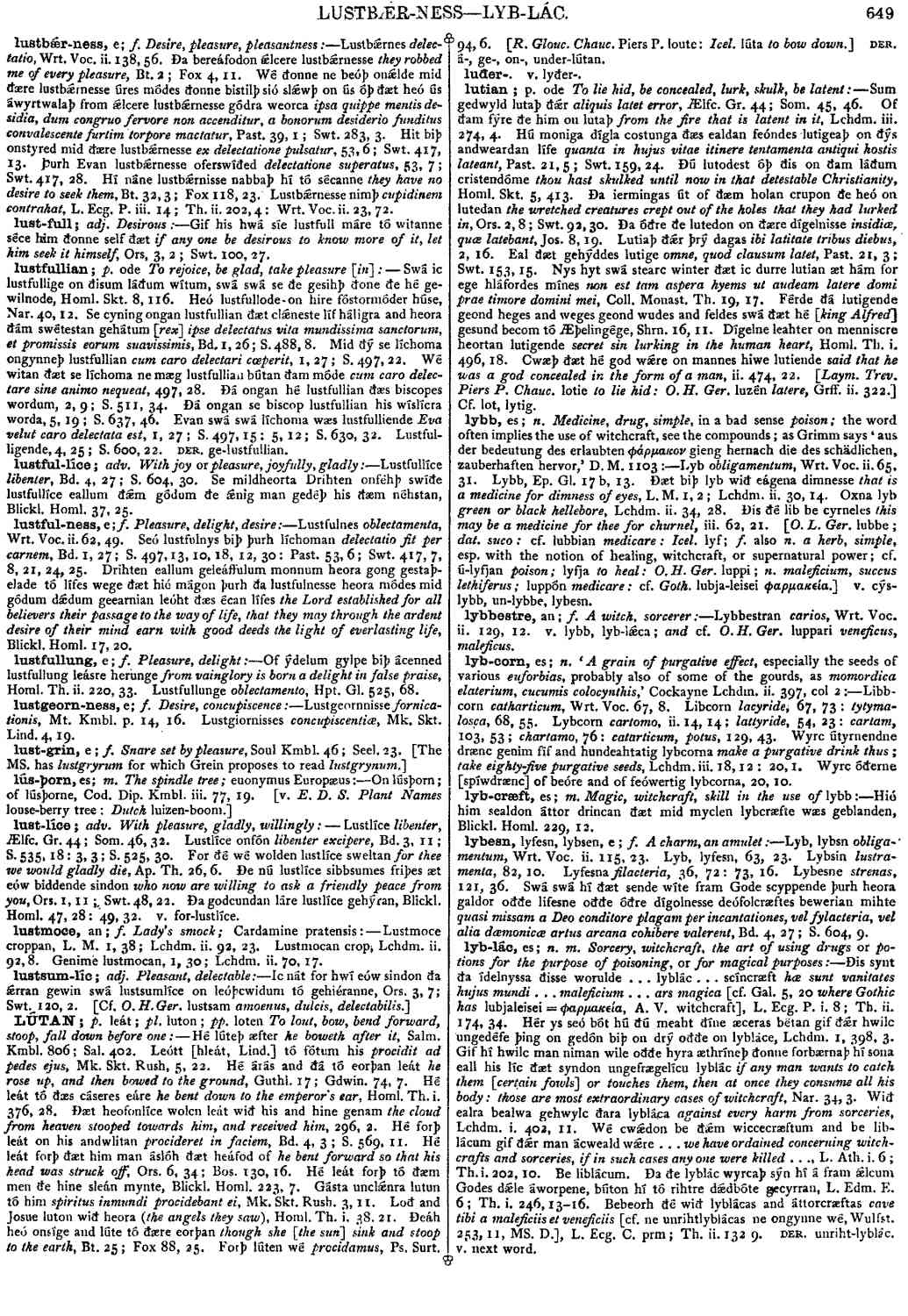LÚTAN
- verb [ strong ]
-
Hé lúteþ æfter
he boweth after it,
- Salm. Kmbl. 806 ;
- Sal. 402 .
-
Leótt [hleát, Lind.] tó fótum his
procidit ad pedes ejus,
- Mk. Skt. Rush, 5, 22 .
-
Hé árás and ðá tó eorþan leát
he rose up, and then bowed to the ground,
- Guthl. 17 ;
- Gdwin. 74, 7 .
-
Hé leát tó ðæs cáseres eáre
he bent down to the emperor's ear,
- Homl. Th. i. 376, 28 .
-
Ðæt heofonlíce wolcn leát wið his and hine genam
the cloud from heaven stooped towards him, and received him,
- 296, 2 .
-
Hé forþ leát on his andwlitan
procideret in faciem,
- Bd. 4, 3 ;
- S. 569, 11 .
-
Hé leát forþ ðæt him man áslóh ðæt heáfod of
he bent forward so that his head was struck off,
- Ors. 6, 34 ;
- Bos. 130, 16 .
-
Hé leát forþ tó ðæm men ðe hine sleán mynte,
- Blickl. Homl. 223, 7 .
-
Gásta unclǽnra lutun tó him
spiritus inmundi procidebant ei,
- Mk. Skt. Rush. 3, 11 .
-
Loð and Josue luton wið heora
(the angels they saw),
- Homl. Th. i. 38. 21 .
-
Ðeáh heó onsíge and lúte tó ðære eorþan
though she [the sun] sink and stoop to the earth,
- Bt. 25 ;
- Fox 88, 25 .
-
Forþ lúten wé
procidamus,
- Ps. Surt. 94, 6 .
Bosworth, Joseph. “LÚTAN.” In An Anglo-Saxon Dictionary Online, edited by Thomas Northcote Toller, Christ Sean, and Ondřej Tichy. Prague: Faculty of Arts, Charles University, 2014. https://bosworthtoller.com/21913.
Checked: 1